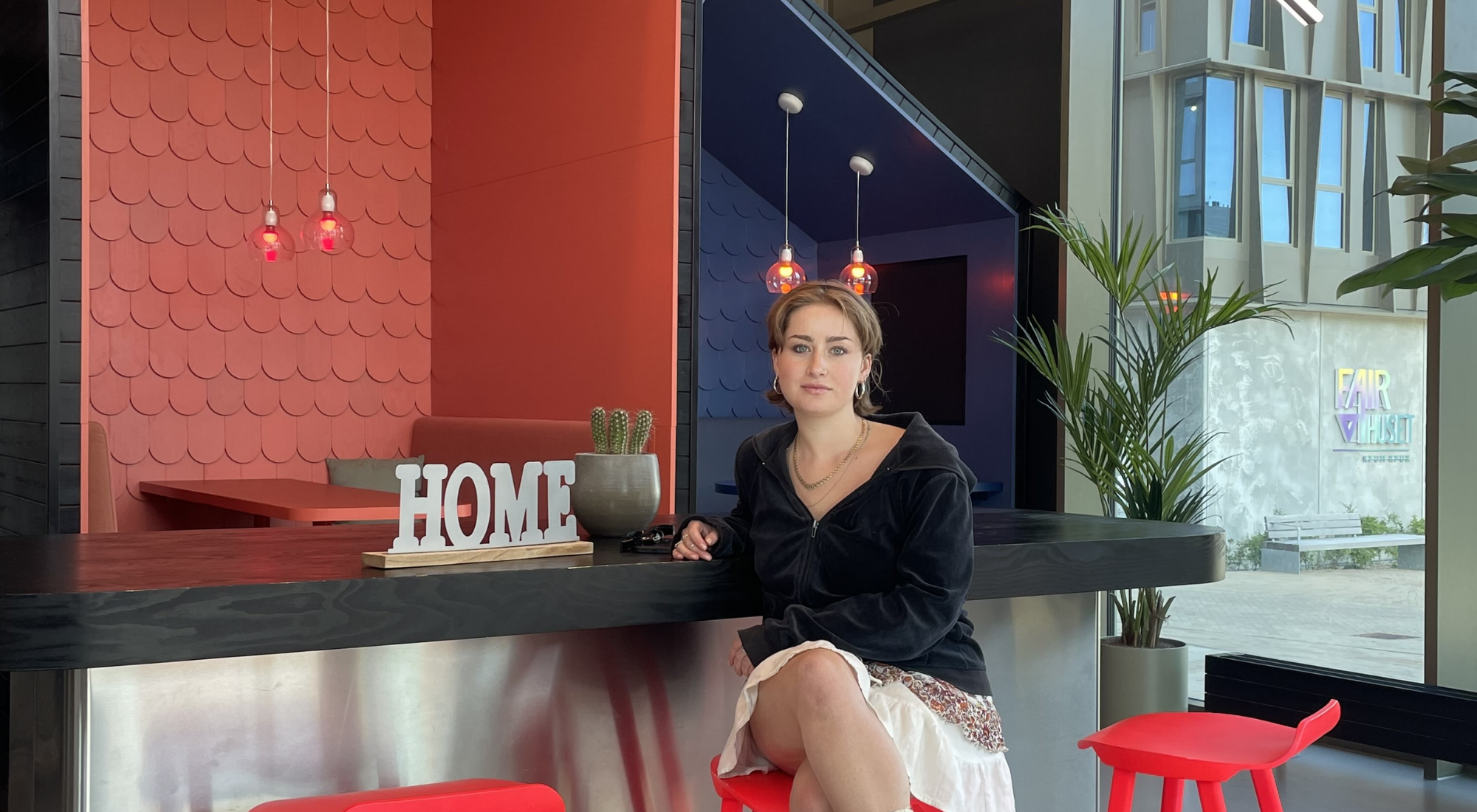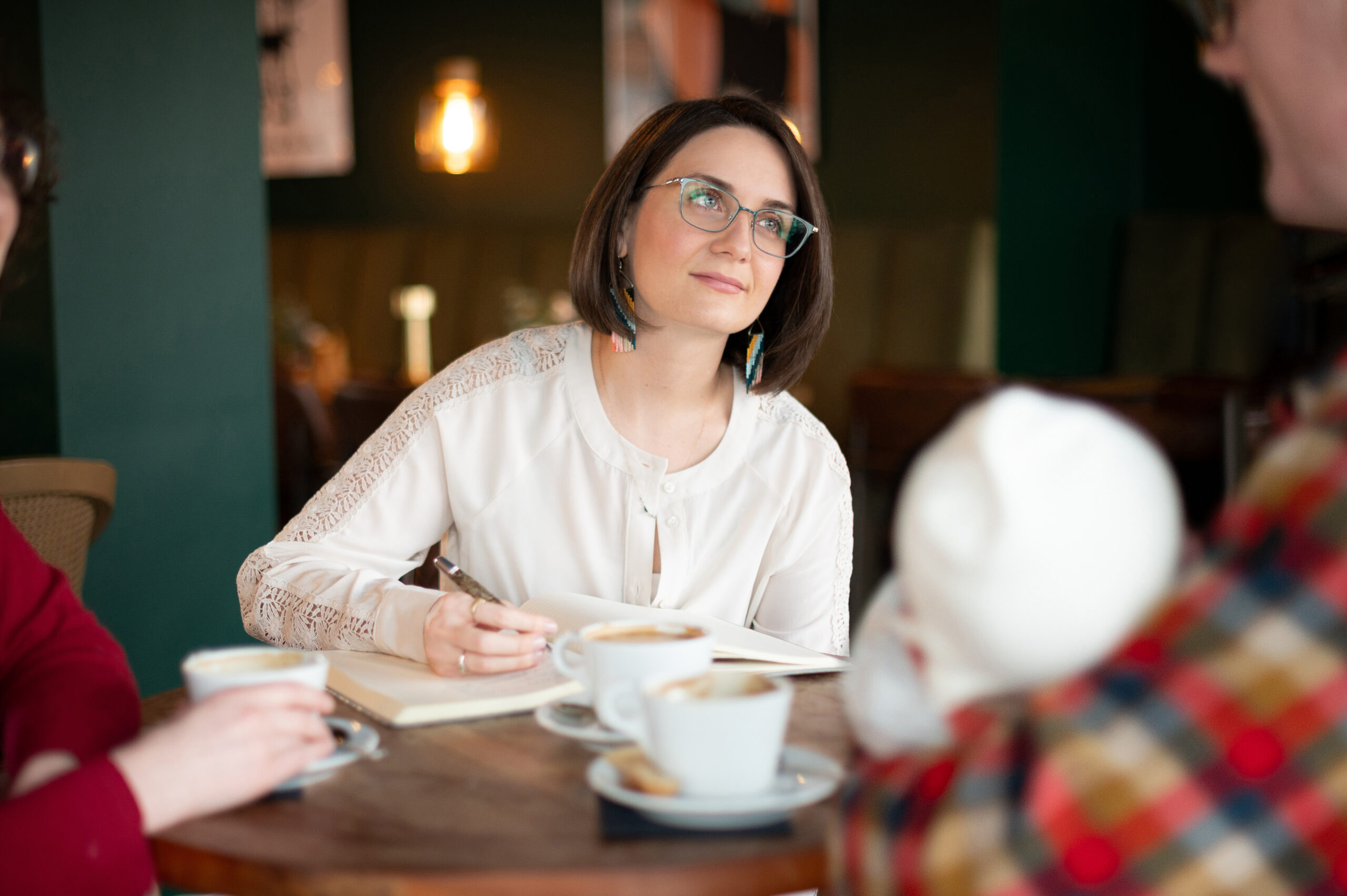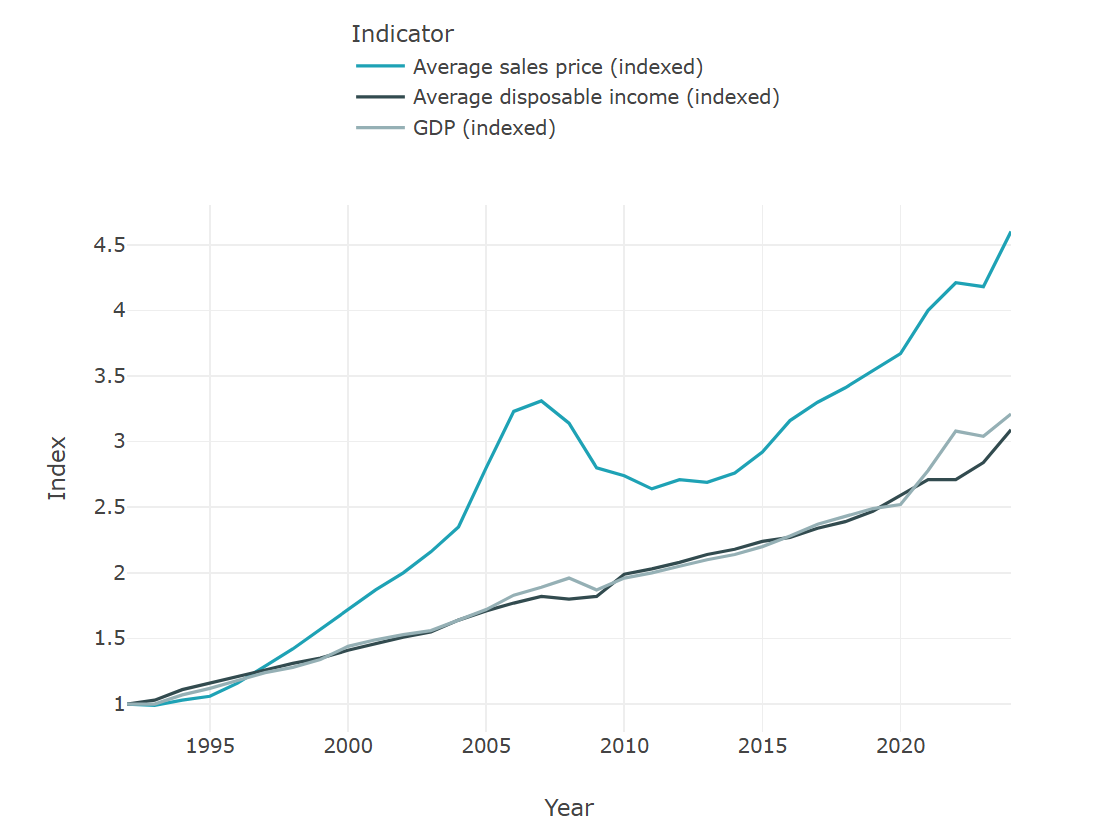On a late spring afternoon at Basecamp by Xior Aarhus, laughter drifts through the courtyard as students gather around shared tables, swapping stories over coffee and takeaway. Inside, in the common kitchens, others cook together, balancing pots on the stove while juggling conversations in half a dozen languages. A handful of students linger in the study lounge, papers and laptops spread out across the tables.
This is the pulse of student life in Aarhus — a city known for its vibrant academic scene, youthful atmosphere, and international outlook. As Denmark’s second-largest city, Aarhus balances the charm of a small town with the energy of a university hub, drawing students from across the world to its cobbled streets, leafy parks, and bustling cafés.
Among the internationals giving in Aarhus, there is 22-year-old Emily, who arrived from Wellington, New Zealand, eager to explore her Danish heritage and build a life in a new country.
Building identity and belonging
When Emily moved to Denmark last July, her motivation went beyond academics. Born and raised in Wellington by a Danish mother and a father from New Zealand, she wanted to strengthen her connection to Denmark. Not just through language, but by immersing herself in everyday Danish life.
Her goal was clear: to learn to speak Danish and feel closer to her cultural roots. Although she applied to several universities across Denmark, Aarhus was the one that accepted her — and it quickly proved to be the perfect match. Aarhus, described by Emily as Denmark’s most student-friendly city, offered the right mix of energy and atmosphere. Unlike the sprawling metropolises she could have landed in, Aarhus felt manageable and familiar.
“Aarhus is famous as a student city, and I’m so glad I ended up here. It’s cosy and lively, a bit like my hometown, Wellington. There’s always something going on, but it’s not overwhelming or hard to find your way around. It doesn’t take long before you start building a network,” she says.
Choosing community over isolation
One of Emily’s most important decisions was to live in a dormitory. While many students opt for private rentals, Emily deliberately chose a more social setup. Her mother had advised her that although Danes are friendly, building deeper friendships could take time. A dorm full of other newcomers would make it easier to find a sense of belonging. That advice turned out to be spot on.
“My mother is Danish, and I wanted to become more Danish myself – speak the language, live the culture,” Emily explains. “That’s what brought me here.”
From the very beginning, Emily embraced the opportunities around her. She actively sought out social events and said “yes” to almost everything. A personal rule she made for herself to avoid missing out or becoming isolated.
“I’m the kind of person who says yes to almost everything,” she laughs. “Especially now that I’m in Denmark. I feel like I’d be wasting time if I didn’t throw myself into things.”
This open mindset quickly led to new friendships and unexpected hobbies. One of them was Gaelic football, a sport she had never played before.
“A friend asked if I wanted to join, and I figured why not. Now I play every week and it’s one of the highlights of my week.”
A social system that works
The dormitory turned out to be more than just a place to live. Because many residents moved in at the same time, just before the semester began, there was a natural window for people to connect. The dorm also invests in social infrastructure. Emily now helps to organise weekly events at Basecamp, ranging from dinners and game nights to informal meetups. The aim is to give people easy ways to socialise, even if they’re shy or new in town.
“There’s always something happening. You never really have to be alone unless you want to,” she says.
While the communal living environment does come with the occasional noise, especially on weekends, Emily feels the setup strikes a good balance. There are clear rules, and when issues arise, they’re handled quickly and respectfully.
“It’s well managed. If someone’s being too loud, we deal with it. But honestly, I’ve never felt uncomfortable,” she says.
Even small, spontaneous encounters, like complimenting someone’s dress from across the courtyard, have turned into lasting friendships. For Emily, the key is simply stepping outside your room. The rest often takes care of itself. Living with students from all over the world has shaped Emily’s understanding of culture, identity, and everyday life. From how people cook to how they decorate, clean, or talk about home – everything becomes a learning opportunity:
“You realise how different, and yet similar, we all are. I’ve met people from countries I hadn’t even heard of before I moved in.”
The experience has changed her worldview. She feels more open, more curious, and more connected to the wider world, not just through travel, but through close, everyday interactions.
Briefly leaving — but not for long
Although she’s travelled extensively, Emily never expected to feel emotionally attached to a place the way she does now.
“I think I might actually be in love with Aarhus,” she says, and elaborates “It’s just such an easy and welcoming place to live.”
Aarhus gave her something many international students hope for but don’t always find: a sense of true belonging, a place to grow, and a community to return to. Emily will take a short period away from her residence to go to Bali to write her thesis. Once it’s complete, she plans to return to Aarhus.
“Aarhus has really taken care of me. So has my university and my dorm. I feel safe and at home here.”
When asked what advice she’d give others considering studying abroad, Emily doesn’t hesitate:
“Say yes. That’s the most important thing. Every good thing that’s happened to me here came from saying yes — even when I didn’t feel like it.”
For students considering Denmark, or wondering if it’s worth the leap, her answer is clear: it won’t always be easy, but it will absolutely be worth it.













